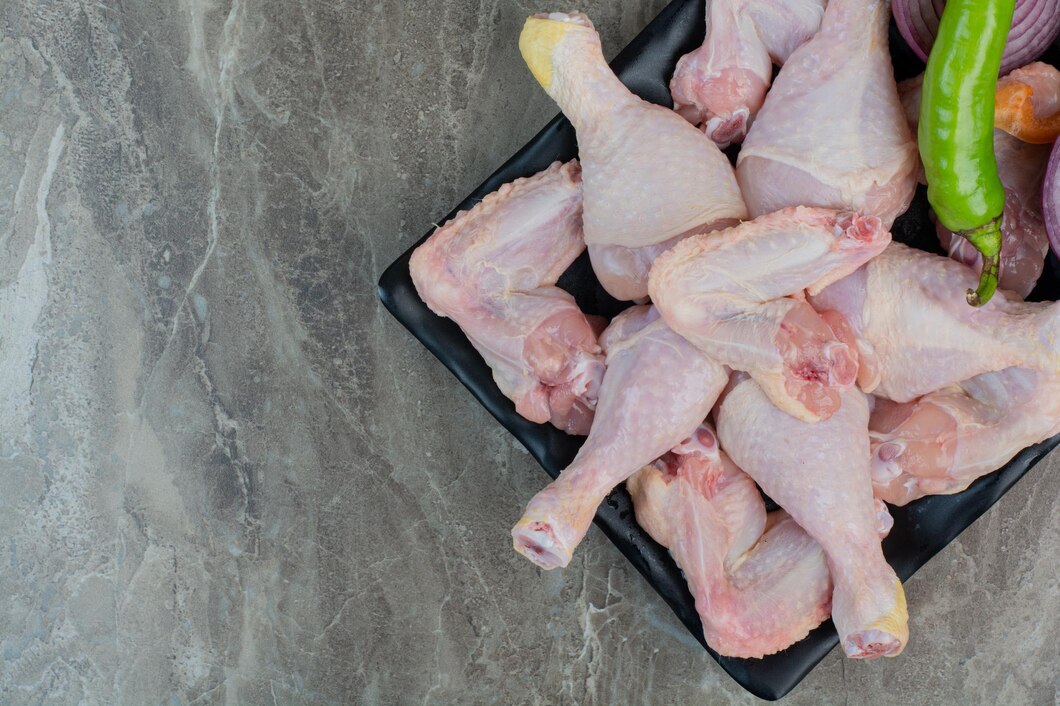Foodborne illnesses are a significant health risk, and certain foods can be more susceptible to contamination by illness-causing bacteria. These bacteria, such as Salmonella, Listeria, E. coli, and Campylobacter, can turn seemingly harmless food into a dangerous health hazard, leading to food poisoning, severe illness, or even death. Here are 10 foods that can be poisonous due to illness-causing bacteria and should be handled and prepared with extra care.
1. Raw or Undercooked Poultry
Raw or undercooked poultry, such as chicken and turkey, is one of the most common sources of Salmonella and Campylobacter bacteria. These bacteria can cause severe gastrointestinal illness. To prevent infection, always cook poultry to an internal temperature of at least 74°C (165°F).
2. Raw Eggs
Raw or improperly cooked eggs can harbor Salmonella. Foods that contain raw eggs, such as homemade mayonnaise, raw cookie dough, or egg-based dressings, pose a risk. Always cook eggs thoroughly, and avoid consuming raw egg-based dishes.
3. Raw Seafood
Raw seafood, such as sushi, oysters, and clams, can contain Vibrio bacteria, which cause severe gastrointestinal infections. Shellfish are particularly prone to bacterial contamination from polluted water sources. Only consume seafood from reputable sources and ensure it’s cooked properly to avoid infection.
4. Unpasteurized Dairy Products
Unpasteurized (raw) milk, cheese, and other dairy products can contain harmful bacteria like Listeria, E. coli, and Salmonella. Pasteurization kills these pathogens, so always choose pasteurized dairy products to reduce the risk of illness.
5. Deli Meats
Deli meats, such as ham, turkey, salami, and cold cuts, can be contaminated with Listeria, especially if stored improperly. This bacterium can thrive even in refrigerated environments, making deli meats a high-risk food. Reheat deli meats before consumption to reduce the risk of infection.
6. Sprouts
Raw sprouts, such as alfalfa, bean, and radish sprouts, are prone to contamination with E. coli and Salmonella due to the warm, humid conditions in which they are grown. To avoid illness, it is best to cook sprouts or purchase them from a reliable source where food safety is prioritized.
7. Ground Beef
Ground beef is particularly susceptible to E. coli contamination because bacteria from the surface of the meat can spread throughout during the grinding process. Eating undercooked ground beef can result in serious infections. Cook ground beef to an internal temperature of 71°C (160°F) to kill any harmful bacteria.
8. Unwashed Fruits and Vegetables
Fruits and vegetables, especially those that are eaten raw, can be contaminated with E. coli, Salmonella, or Listeria from the soil or water used to grow them. It is essential to wash all produce thoroughly before consumption, particularly leafy greens, melons, and berries.
9. Unpasteurized Fruit Juices
Unpasteurized fruit juices, such as fresh-squeezed apple cider or orange juice, can harbor bacteria like E. coli and Salmonella. Pasteurized juices are safer options since the pasteurization process kills harmful bacteria without altering the taste.
10. Soft Cheeses
Soft cheeses like feta, brie, and camembert made from unpasteurized milk can contain Listeria, a bacterium that can cause life-threatening infections, particularly in pregnant women, newborns, and individuals with weakened immune systems. Always check that soft cheeses are made from pasteurized milk or opt for safer, hard cheeses.
While these 10 foods can be delicious and nutritious, they are more susceptible to contamination by illness-causing bacteria. To protect yourself from foodborne illness, it’s important to follow safe food handling practices such as cooking meats thoroughly, washing produce, and choosing pasteurized products when possible. Always be mindful of food safety guidelines, as consuming contaminated food can lead to serious health risks. If you suspect food poisoning, seek medical attention immediately.








